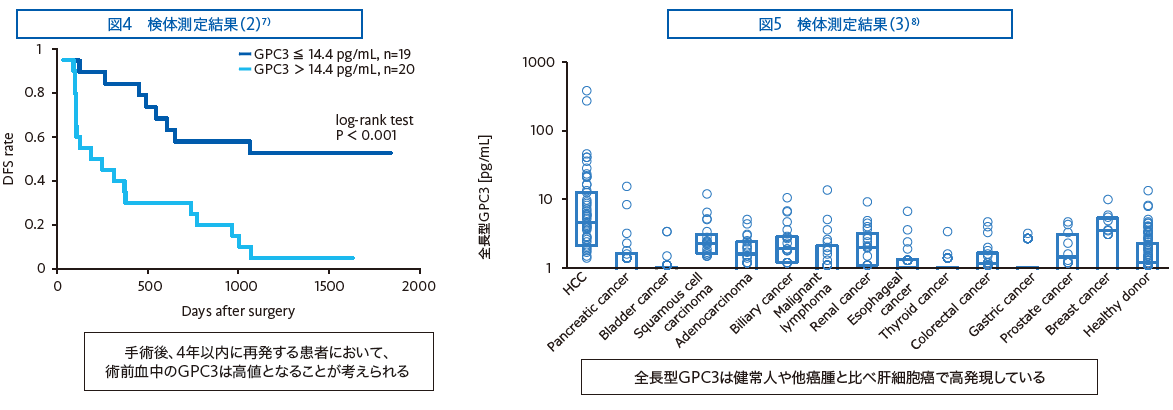
製品・サービス
Glypican-3 (GPC3) 受託測定サービス
特長
GPC3とは?


1) T. Nakatsura et al., “Glypican-3, overexpressed specifically in human hepatocellular carcinoma, is a novel tumor marker,” Biochem. Biophys. Res. Commun., vol. 306, no. 1, pp. 16–25, 2003.
2) Y. Midorikawa et al., “Glypican-3, overexpressed in hepatocellular carcinoma, modulates FGF2 and BMP-7 signaling,” Int. J. Cancer, vol. 103, no. 4, pp. 455–465, 2003.
3) H. Shirakawa et al., “Glypican-3 expression is correlated with poor prognosis in hepatocellular carcinoma,” Cancer Sci., vol. 100, no. 8, pp. 1403–1407, 2009.
4) B. De Cat et al., “Processing by proprotein convertases is required for glypican-3 modulation of cell survival, Wnt signaling, and gastrulation movements,” J. Cell Biol., vol. 163, no. 3, pp. 625–635, 2003.
5) J. Filmus and S. B. Selleck, “Glypicans: proteoglycans with a surprise,” J. Clin. Invest., vol. 108, no. 4, pp. 497–501, 2001. Vvf5r
6) Y. Hippo et al., “Identification of Soluble NH2-Terminal Fragment of Glypican-3 as a Serological Marker for Early-Stage Hepatocellular Carcinoma,” Cancer Res., vol. 64, no. 7, pp. 2418–2423, 2004.
7) M. Miura et al., “Usefulness of plasma full-length glypican-3 as a predictive marker of hepatocellular carcinoma recurrence after radial surgery,” Oncol. Lett., vol. 19, no. 4, pp. 2657–2666, 2020.
8) Y. Shimizu et al., “Plasma and tumoral glypican-3 levels are correlated in patients with hepatitis C virus-related hepatocellular carcinoma,” Cancer Sci., vol. 111, no. 2, pp. 334–342, 2020.
※本サービスは研究用のため、診断には使用できません。
サービスフロー
ご提出いただく検体量等の詳細情報はお問い合わせください。

関連論文・関連ページ
関連論文
関連ページ
お問い合わせ
- Glypican-3 (GPC3) 受託測定サービス
- 特長
